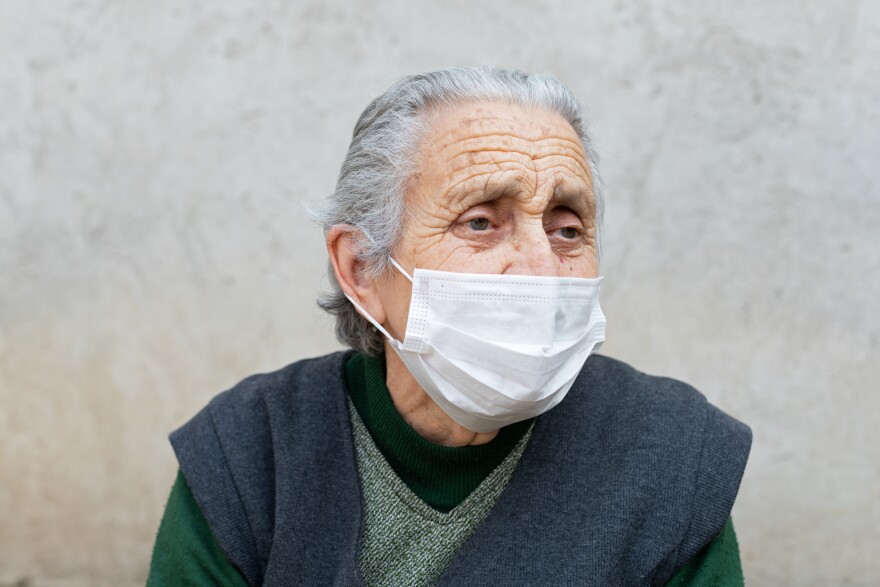The COVID-19 pandemic has thrust many of us into isolation — both physically and in some cases socially. While this isolation can feel disheartening, for most of us it will be temporary. But that’s not the case for people with dementia.
Anne Basting works with the elderly and people experiencing dementia through her organization TimeSlips. She is also the author of a new book called Creative Care: A Revolutionary Approach to Dementia and Elder Care. Basting says the isolation brought on by the pandemic has been an eye-opening experience, giving her greater insight into what many people with dementia experience every day.
“Now, in this time of COVID and the pandemic, we’ve just seen a surge in yearning for connection. So we’ve been busy and I’ve been busy trying to figure out how to get the tools of engagement out into the hands of caregivers who now find themselves alone at home with their loved one,” says Basting.
As many caregivers find support systems closing due to the pandemic, she says this only exacerbates the feelings of isolation dementia causes. The disease attacks the ability to communicate as the world becomes harder to process for the person with dementia.
With the pandemic, Basting says more people can empathize with this feeling more than ever. One way TimeSlips is helping everyone feel more connected is through postcards.
TimeSlips reached out to care homes and put together a list of 133 homes across the U.S., Europe, and Australia that were hoping to receive postcards. Then they put together a short training of how to write uplifting and engaging cards for people to receive and the program was launched.
Suggestions include adding a drawing to the postcard, writing a poem, or prompting a question. TimeSlips has also put together a series of questions called “Beautiful Questions,” aimed to inspire thinking differently. Questions range from, “What is your anchor?” to “If your foot could talk, what would it say?”
“[Postcards] are a generosity, putting a postcard stamp and taking your time out to send well wishes to someone you don’t know, to brighten their day and it’s also creative and it invites the person on the other side to respond creatively as well,” she says.
Since March, they have sent out over 11,000 cards.







